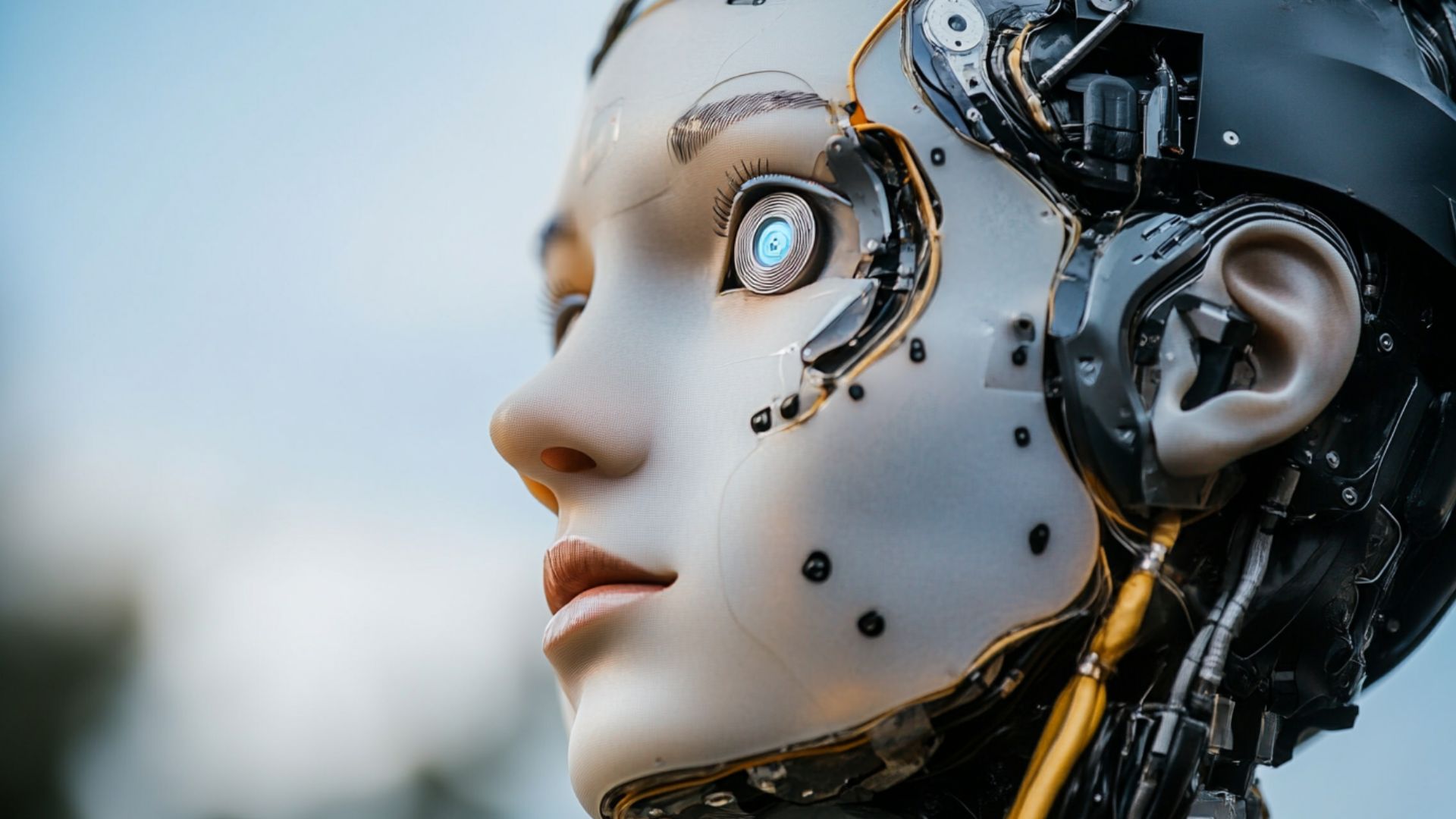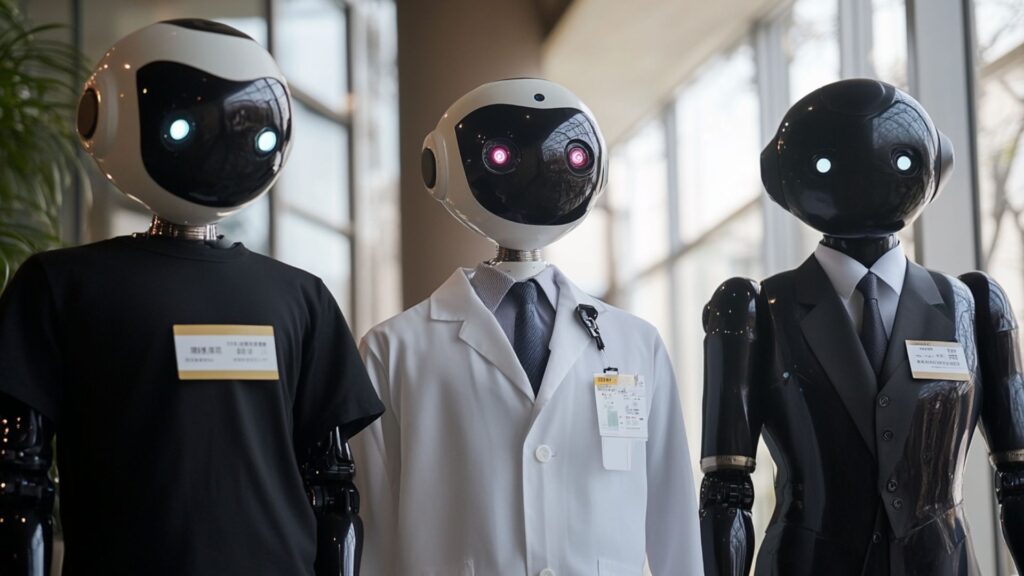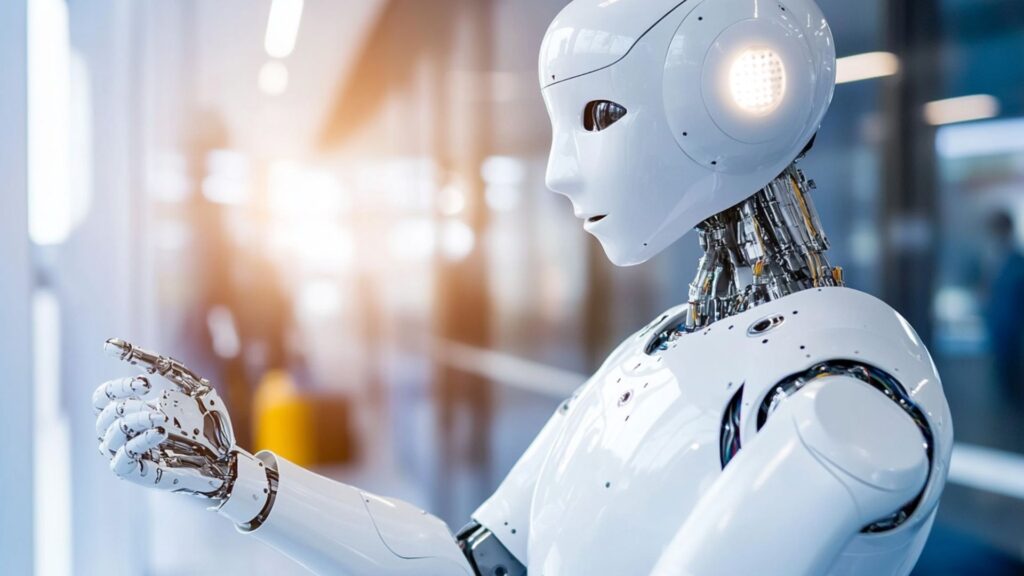Intelligent Automation (AI) Trends and Predictions 2025

Technology adoption provides excellent solutions for businesses across all industries today. AI implementation helps companies achieve their goals while reducing operational costs significantly. Today, intelligent automation combines the best available technologies for maximum business impact.
This process drives transformational changes across various business environments and operational workflows. Automation trends include deploying reliable, high-quality tools that deliver measurable results. Companies use automation to handle routine tasks and optimize costs effectively.
Using proven technology helps improve customer engagement and satisfaction levels consistently. Machine learning and natural language processing serve as essential supporting technologies. The right combination of automation topics guides companies toward sustainable growth and success.
Companies enhance customer service quality while developing new market opportunities for expansion. Intelligent automation is essential for optimizing operations and improving overall business efficiency. Businesses deploy bots and virtual assistants to enhance customer interactions and support services.
What Is Intelligent Automation and Why It Matters in 2025
Artificial intelligence serves as an essential tool for improving business workflows and operations. Intelligent automation helps combine critical tools to achieve specific business objectives effectively. The combination of robotic process automation (RPA), machine learning, and AI is fundamental.
Current automation trends incorporate these tools reliably to complete complex business tasks efficiently. Together, these tools can analyze data, adapt to changes, and learn from historical patterns. Companies achieve real-time workflow optimization and improved operational efficiency through strategic implementation.
Combining quality tools helps businesses achieve their established goals and performance targets. Enhanced customer interactions are equally important for delivering excellent user experiences consistently. Here's how intelligent automation is transforming business operations across industries:
- Decision-Making. AI-based algorithms analyze vast amounts of business data efficiently and accurately. Based on historical patterns, systems detect trends and predict desired outcomes reliably. Considering current trends helps companies make quick, high-quality decisions that drive results.
- Scalability. Process automation trends include scalability capabilities that support growing demand and expanding operations. Companies can develop their businesses and accelerate growth through strategic automation implementation. Intelligent automation is essential for scaling and customizing processes according to business needs.
- Routine Process Automation. Automation handles routine processes without requiring constant human oversight or intervention. AI is essential for performing repetitive and routine operations with consistent accuracy. Order processing, data verification, and spreadsheet calculations represent primary automated tasks today.
- Cost Reduction. Companies improve efficiency while reducing operational costs through strategic automation deployment. Intelligent automation reduces operating expenses by minimizing time requirements for routine tasks. Latest automation trends help reduce operational costs while maintaining high-quality service standards.
- Accuracy and Customer Experience. Accuracy guarantees success and establishes reliable operations for growing companies. Enhanced customer experience helps achieve business success and attract new customer attention. Intelligent chatbots and automated systems significantly increase overall customer satisfaction and loyalty.
Key Components of Intelligent Automation
Intelligent automation includes several essential components that work together harmoniously for optimal results. Combined, these technologies help companies achieve significant success and optimize their operations. These technologies enable automation of both routine and complex business processes effectively.
Enhanced customer interaction and improved operational efficiency are integral to new automation technology. Here's what intelligent automation includes in its comprehensive framework:
- Robotic Process Automation (RPA)
Robotic automation focuses on handling repetitive tasks with predetermined logic and efficiency. Pre-configured tasks and clear operational logic help systems work with maximum efficiency. RPA includes data copying, form processing, and file management across various platforms.
Virtual robots help imitate human actions while maintaining consistency and accuracy. These systems operate internally without requiring additional human interactions or oversight.
- Artificial Intelligence (AI) and Machine Learning (ML)
AI and ML represent the perfect combination for mimicking human intelligence and decision-making. Machine learning systems learn from historical data and past interaction patterns continuously. ML helps improve accuracy and enhances decision-making processes through data analysis.
Combined with AI, systems understand internal context and analyze historical data patterns effectively. Companies use these technologies to make informed predictive decisions and understand system behaviors.
- Natural Language Processing (NLP)
Automation's future will be significantly enhanced through NLP implementation and development. NLP is essential for understanding and processing human language in business contexts. Human language generation and communication capabilities improve customer interactions and support services.
NLP enables systems to interact with people using natural, conversational language patterns. Voice assistants and chatbots are essential applications across many business sectors today.
- Optical Character Recognition (OCR)
OCR enables text recognition and analysis from various images and documents. OCR plays a crucial role in automating workflows by converting information formats. Document conversion is performed according to company strategies and operational requirements.
The automated future involves integrated systems working together to maintain logical process flows. Handling basic tasks through RPA remains extremely important for operational efficiency. OCR recognizes important text and documents that are crucial for business operations.
Systems process natural language, understand text content, and enable comprehensive communication with customers. AI and ML enable advanced data analysis, classification, and prediction of future actions.
Intelligent Automation vs Traditional Automation
Automation is essential for optimizing workflows and making informed business decisions consistently. Customer engagement and experience improvement are impossible without effective automation strategies. Future industrial automation trends predict significant workflow improvements in business environments.
Today, there are two main types of automation — traditional and intelligent systems. Each approach offers distinct advantages and serves different business environment needs.
| Traditional Automation | Intelligent Automation |
| Functionality. Operates according to established, repetitive processes and predetermined tasks only | Functionality. Handles complex, analytical tasks that require logical reasoning and adaptability |
| Flexibility. Limited to specific scenarios previously programmed by the company without adaptation capabilities | Flexibility. Makes decisions and adapts to new conditions while processing various input data types |
| Learning. Cannot self-learn and operates only according to established rules and programming | Learning. Uses machine learning to improve decision-making processes and performance continuously |
| Error Handling. Unexpected events can cause traditional automation systems to fail or stop completely | Error Handling. Intelligent systems analyze situations constantly and independently choose appropriate actions |
| Data Processing. Cannot work effectively with unclear or unstructured data and information | Data Processing. Excels at processing text, images, and natural language using NLP and OCR |
| Human Interaction. Requires accurate data entry and lacks understanding of human language patterns | Human Interaction. Understands human language and uses data effectively for personalized customer dialogue |
| Applications. Best for reports, data movement, and basic accounting tasks with clear parameters | Applications. Ideal for customer analytics, forecasting, and comprehensive automated business solutions |
Industry-Specific Applications and Use Cases in 2025

The automation future will improve many business processes across different industry sectors. In 2025, intelligent automation is absolutely essential for competitive business operations. Customer service optimization and workflow customization are achieved through strategic automation implementation.
Companies can reduce operational costs while adjusting work processes for maximum efficiency. Accelerated data processing, increasing demand management, and trend research represent primary benefits. Intelligent automation is widely used across many sectors that are vital to society.
- Retail. Automation creates personalized product recommendations based on individual customer preferences and behaviors. Machine learning analyzes buyer behavior patterns to optimize marketing and sales strategies. Future industrial automation trends include improved inventory management and supply chain optimization. Companies can forecast demand accurately and optimize supply chain operations for efficiency. Automated customer service through chatbots provides 24/7 support and assistance to customers.
- Finance. Intelligent automation processes credit applications, risk assessments, and fraud detection systems. Potential risks are identified and investigated before problems can impact business operations. Customers receive continuous personalized communication regarding financial services and account management. Chatbots and intelligent assistants help financial companies achieve success through enhanced customer service.
- Manufacturing. Intelligent automation handles predictive equipment maintenance and quality control monitoring systems. Companies identify potential equipment problems before failures occur, maintaining operational continuity. Quality control is performed through constant monitoring and real-time data analysis. Industrial automation trends include adaptive production planning and demand forecasting for optimal efficiency.
- Healthcare. Automation helps process medical records quickly while improving diagnostic accuracy and efficiency. Additional tools enhance diagnostic solutions and patient care quality significantly. Virtual assistants provide enhanced patient interaction and support for medical inquiries. Patients can receive answers about appointment scheduling and basic medical information instantly.
- Logistics. Automation optimizes delivery routes based on real-time data and historical interaction patterns. Decisions are made using predictive analytics and machine learning algorithms for efficiency. Automated systems handle cargo loading and reduce physical strain on human workers. The automation future includes even better work environments in logistics and transportation sectors.
Healthcare and Financial Services Use Cases
Intelligent automation is deployed across many critical industry sectors for improved operations. Automation enhances accuracy, efficiency, and accessibility of essential services across various industries. In financial services and healthcare, automation plays an increasingly important role.
Automation helps doctors prescribe appropriate treatments while monitoring equipment performance and patient outcomes. In financial services, employees investigate financing risks and detect various anomalies effectively.
Automation updates patient data and performs accurate data classification for medical records. RPA and NLP are extremely important for healthcare sector efficiency and patient care. Patients receive quality service and convenient appointment scheduling through automated systems.
New automation technology supports diagnostic processes by analyzing symptoms and medical imaging data. MRI and X-ray diagnostics are performed with AI assistance, providing recommendations to doctors. Automated appointment reminders and patient communication are handled through intelligent chatbots effectively.
Patients receive personalized information about medications and medical procedures through automated systems. Automation models assess chronic disease development and progression for better patient outcomes. Billing processes and insurance claims are handled efficiently through automated systems.
Automation is integral to processing insurance claims and credit applications efficiently. Claims processing and fraud detection are performed through advanced algorithmic analysis. Automation analyzes documents and verifies compliance before making important financial decisions.
Automation topics extend to assessing customer creditworthiness through specialized algorithms and data analysis. Chatbots provide improved customer service with 24/7 availability and comprehensive support. Customers receive complete answers and application status updates through automated systems.
Intelligent automation enables financial analytics and personalized financial planning for interested customers. Systems create customized financial strategies based on individual customer needs and goals.
Retail and Manufacturing Intelligence Integration
Intelligent automation is extensively used in retail and manufacturing sectors for competitive advantage. Automation creates new levels of efficiency and customer focus across these industries. Work processes are optimized to deliver excellent results and enhanced customer experiences.
The automated future in these sectors offers improved services and operational efficiency standards.
Trading systems create product recommendations based on customer trends and behavioral analytics. Tracking behavioral patterns helps companies offer quality products that meet customer needs. Demand forecasting and automatic inventory replenishment are performed through intelligent systems.
Customer service with enhanced interaction capabilities is equally critical for business success. Customers receive personalized product recommendations and support available 24/7 through automated systems. The future of automation helps track market trends and pricing in real-time for competitive advantage. Real-time monitoring helps adjust pricing strategies and stock the right products effectively.
Automation's future will improve production through advanced sensor data analysis capabilities. Intelligent automation prevents errors and equipment breakdowns through predictive maintenance systems. Real-time data integration improves logistics and supply chain management significantly.
Quality control systems help maintain product standards while reducing defects and shortages. Computer vision systems detect defects and prevent quality issues before they impact customers. Companies use automation to understand demand changes and respond to unexpected situations effectively.
Top Intelligent Automation Trends to Watch in 2025

The best intelligent automation trends for 2025 include strategic technology combinations and innovations. These trends will shape the future by accelerating digital transformation across industries. Through artificial intelligence implementation, automation will reach new levels of sophistication and capability.
Here are the prominent trends expected to dominate business automation in 2025:
- Hyperautomation. Hyperautomation involves comprehensive automation implementation across multiple business areas and processes. Business processes improve through constant data processing and intelligent decision-making capabilities. Customer experience gains momentum through enhanced personalization and automated service delivery. Machine learning, natural language processing, and analytics combine to create integrated systems. Companies will eliminate routine manual tasks through comprehensive automation strategies and implementations.
- Democratization. IT automation trends improve democratization by increasing accessibility to automation tools. Developers can use automation tools with user-friendly interfaces and simplified programming requirements. Companies can independently create automation solutions for a wide range of business applications. Intelligent automation becomes the best choice for achieving business goals while reducing human workload.
- Low-Code Platforms. These platforms enable automated solution creation without requiring extensive technical knowledge. Development acceleration occurs while reducing dependence on specialized IT professionals and resources. Intelligent automation is ideal for business experts researching market changes and opportunities. Business process automation trends will reach new levels of improved service delivery and efficiency.
- Ethical AI. Transparency and privacy protection in AI implementation remain critically important considerations. Enhanced processing capabilities will address all ethical aspects of automated work and decision-making. Systems will avoid discrimination and operate without bias in their automated processes. Customers can rely on personal data protection when using AI-powered systems and services.
Challenges and Risks in Scaling Intelligent Automation
Automation in the future improves task execution approaches and enhances customer experience across business operations. However, there are specific challenges that require careful attention and strategic planning. Scalability requires constant monitoring and proactive management of potential issues and risks.
Documentation limitations and unprepared legacy systems can create significant implementation challenges. Integration complexity presents problems due to continuous interaction with existing legacy systems. Without specific strategies and planning, achieving success and productivity becomes extremely difficult.
Data quality and consistency represent important challenges when implementing automation solutions effectively. Automation trends depend on artificial intelligence and access to high-quality, accurate data. Biased inputs lead to incorrect results and create operational problems for businesses.
Current automation trends include algorithmic bias concerns due to lack of transparency. Customers may lose trust in artificial intelligence systems and automated decision-making processes. Undermining trust leads to deterioration in business decision-making and customer relationships.
Organizations must ensure constant monitoring and control of automated systems and processes. Testing and continuous improvement development will help achieve long-term success and reliability. For the healthcare and finance sectors, algorithmic bias plays a particularly crucial role.
Governance and compliance create ongoing risks that require continuous attention and management. Automation growth positively impacts business operations but presents specific challenges and considerations. Intelligent automation becomes autonomous and therefore requires strict data confidentiality and security measures.
How Businesses Can Prepare for the AI Automation Future
Companies can prepare effectively for the automation future through strategic planning and implementation. The right actions will help businesses adapt successfully and use AI as a competitive advantage. Companies will achieve improved efficiency, competitiveness, and quality in their operations through preparation.
Preparation requires implementing appropriate solutions for success and enhanced customer interaction capabilities. Here are essential considerations when preparing for the automation future:
- Workforce Upskilling. Employee development represents the key to successful automation implementation and adoption. Investing in appropriate technology and comprehensive employee training is absolutely crucial for success. Developing skills and introducing AI capabilities will help businesses succeed in competitive markets.
- Process Audit. Comprehensive process audits help identify routine, repetitive tasks suitable for automation. Identifying operational bottlenecks will reveal possible solutions to serious efficiency problems. It's essential to optimize and standardize processes before implementing automation solutions effectively.
- Choosing the Right Vendors. Process automation trends include selecting appropriate technology vendors and service providers. Companies should prioritize system compatibility and scalability when evaluating potential automation partners. Technology providers can offer different tools depending on specific business needs and requirements.
- Flexible Implementation Framework. Using proven methodologies will help test and adapt to AI quickly and effectively. Using reliable, easily scalable tools provides key advantages for growing companies. Following established implementation frameworks will help achieve success while maintaining brand reputation.
AI represents a powerful tool for streamlining operations and improving customer interactions significantly. Many companies need to invest in employee development to familiarize teams with new technology. The right strategic approach will improve operations while reducing manual workload and operational costs.


